A collaboration between the Critical Poetics Research Group at Nottingham Trent University and Nottingham Contemporary, featuring international guest speakers, this series of workshops provides a new platform for debate, collaboration and innovation suitable for those interested in exploring the relationship between creative and critical theory and practice.
Eighteen participants were carefully selected to take part in the series. All workshop sessions took place online. This workshop programme was accompanied by the Five Bodies poetry series, a programme of public readings which brought together some of the most outstanding British and international poets to share unexpected ideas, experimental drifts and multiple voices following a long-standing tradition in poetry writing that melds perceiving, sensing, feeling and knowing as knowledge-making practices.
The original abstracts for each workshop are below.
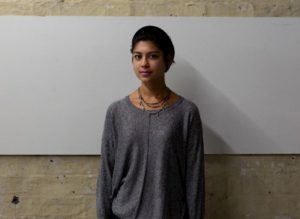
Nisha Ramayya, ‘On Listening’
Wed 11 Nov, 5.30pm–7.30pm
Led by poet Nisha Ramayya, this creative-critical workshop hopes to experiment with learning through listening, to experience through obscurity, and to find sense through sound. Recognising our different circumstances and gathering remotely, discussions include the notion of the listening-walk, approached speculatively through dreams, patterns, and soundscapes. This is an opportunity to reflect on different bodies, environments, and relations as well as listening collectively to Alice Coltrane, Ellen Fullman’s The Long String Instrument, and a deep-sea cabled observatory in Monterey Bay. Readings include Jackie Wang’s ‘Oceanic Feeling and Communist Affect’ (2017), Patrick Farmer’s ‘Azimuth, the Ecology of an Ear’ (2019), and Nathaniel Mackey’s ‘Sound and Sentiment, Sound and Symbol’ (1987). Listening across these sources, this workshop asks: what are the material conditions and social textures of the ‘Sonic Continuum’, and how might they be rendered in poetry? How do we think through sounds and listen through writing?
Nisha Ramayya is a poet whose debut collection States of the Body Produced by Love (2019) is published by Ignota Books. Other publications include Notes on a Means without End (2020) in Poetry Review; In Me the Juncture (2019) published by Sad Press; Threads (2018), a critical-creative pamphlet co-authored with Sandeep Parmar and Bhanu Kapil, published by clinic. She is a member of the Race & Poetry & Poetics in the UK research group and a lecturer in Creative Writing at Queen Mary University of London. In spring 2020, Ramayya is Poet in Residence at John Hansard Gallery, Southampton.
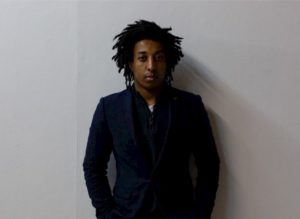
James Goodwin, ‘On Lysis’
Wed 9 Dec, 5.30pm–7.30pm
Led by poet James Goodwin, this creative-critical workshop hopes to cultivate a broad exchange of ideas around the term ‘lysis’. Lysis, from the Greek word to loosen or unbind, refers to the breakdown of cell membranes, as well as the abatement of acute disease symptoms; it also constitutes the title of Plato’s early dialogue, ‘Lysis, or Friendship’, and it is this text that will provide our point of departure. By positioning ‘Lysis’ and lysis in relation to Jacques Derrida’s notion of writing as a pharmakon (remedy, poison, scapegoat), readings include Gwendolyn Brook’s short 1969 broadside, ‘Riot’, and D. S. Marriott’s ‘Preface: 16 Bars’ and ‘Back In The Ends (After Kano)’. Thinking through Fred Moten’s remark that the ‘lyric disturbs and augments lysis’, Goodwin engages both creatively and critically with/in a philopoetics of lysis as a way of reading as writing that allows us, in the spirit of C2, to ‘experimentalise’ with the conditions of our being.
James Goodwin is a poet undertaking a PhD in English and Humanities at Birkbeck, University of London with a thesis on the blacksociopoetics of marronage, breath, sacrality and emanation. His pamphlet, aspects caught in the headspace we’re in: composition for friends, is forthcoming with Face Press; and his debut book, Fleshed Out For All The Corners Of The Slip, is forthcoming with the87press. His creative and critical work has appeared in online and print publications such as Intercapillary Space, Datableed, No Prizes, the Berkeley Poetry Review, earthbound press, and Poetry Wales, and is forthcoming with Granta Magazine and Hythe.
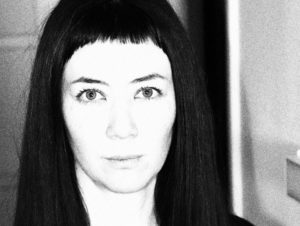
Johanna Hedva, ‘On Doom’
Wed 10 Feb 2021, 5.30pm-7.30pm
Led by poet Johanna Hedva, this creative-critical workshop asks what might be opened because of, and through, the foreclosure of possibility. ‘Death, destruction, or some other terrible fate,’ reads the google definition of ‘doom’. In the wake of 2020 and its various catastrophes (COVID-19, the California wildfires, the U.S. election, the climate emergency), doom has asserted itself as a dominant condition. But what happens when we consider doom as generative: a beginning rather than an end? Can doom be used as a material like any other, malleable and infrastructural, decorative and common? For peoples not supported by the world’s institutions of normative power, doom has already been long upon us and the world has ended many times. Think of Sun Ra,’It’s After the End of the World, Don’t You Know That Yet?’ What comes to life within the space detonated by an event horizon? What new forms of meaning might be both annihilated and birthed by articulating doom? Is the doom/hope binary useful? ‘On Doom’ explores, through the entanglements of politics and aesthetics, how the actions of surrender, renunciation, and yielding are potentially emancipatory, how encountering the end can produce new forms of meaning for the past, present – and the future.
Johanna Hedva is a Korean-American writer, artist, musician, and astrologer. Hedva is the author of Minerva the Miscarriage of the Brain, a collection of poems, performances, and essays, and the novel On Hell. Their album The Sun and the Moon was released in 2019, and the LP, Black Moon Lilith in Pisces in the 4th House, a doom-metal guitar and voice performance influenced by Korean shamanist ritual will be released in January 2021. Their work has been shown at Haus der Kulturen der Welt, Klosterruine, and Institute of Cultural Inquiry, Berlin; The Institute of Contemporary Arts in London, Performance Space New York, the LA Architecture and Design Museum, as well as the Museum of Contemporary Art on the Moon. Their writing has appeared in Triple Canopy, frieze, Lithub, The White Review, and is anthologized in Whitechapel: Documents of Contemporary Art.
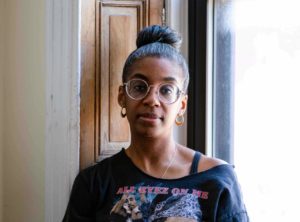
Simone White, ‘On Surrounding’
Wed 10 Mar 2021, 5.30pm-7.30pm
Led by poet and critic Simone White, this workshop explores various articulations of material relation and contact, wondering, What is it to be in or within a set of conditions? We will consider Denise Ferreira da Silva’s “envelopment,” Martin Heidegger’s “fourfold” and the “strata” of Deleuze and Guattari, all toward a discussion of the possibilities for a poetic condition of externality — its duration, its meaning.
Simone White is a poet and critic. She is the author of Dear Angel of Death, Of Being Dispersed, and House Envy of All the World and the chapbooks Unrest and Dolly. Her newest book, or, on being the other woman, is forthcoming in 2021 with Duke University Press. Her work has also appeared in publications including Arttforum, BOMB, e-flux journal, the Chicago Review, and the New York Times Book Review. White teaches in the English Department at the University of Pennsylvania and on the faculty of the Milton Avery Graduate School of the Arts at Bard College.
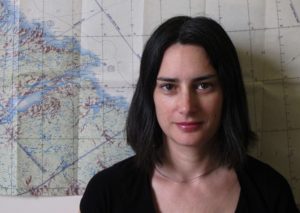
J. R. Carpenter, ‘On Verticality’
Wed 14 Apr 2021, 5.30pm-7.30pm
Led by writer J. R. Carpenter, this creative-critical workshop will ask questions about verticality. For much of human history we have crept along the surface of this planet. Until Constantine John Phipps began to sound the ocean bed between Iceland and Norway in 1773, many Europeans believed the sea was bottomless. In 1773 four of the world’s most active volcanoes erupted, spewing particles from deep within the earth high into the atmosphere, encompassing Europe and Asia in an unwholesomeness of air. The first balloon ascents were staged in Paris that same strange meteorological year. Human flight would finally be achieved by imitating not a bird but a cloud. How has verticality altered human perception? In Spinal Catastrophism: A Secret History, Thomas Moynihan argues that we were never meant to walk upright. We were never meant to eat with implements. Posture and language are accidents. Put your phone down for a minute. Lie on your back. On the ground. Let’s think about about heights and depths beyond the scale of the human body, unattainable for humans without technology. A sheer drop, from cloud top to ocean floor, from the spinal column to the earth’s molten core.
J. R. Carpenter is an artist, writer, and researcher working across performance, print, and digital media. Her web-based work The Gathering Cloud won the New Media Writing Prize 2016. Her poetry collection An Ocean of Static was highly commended by the Forward Prizes 2018. Her most recent collection This is a Picture of Wind, is based on a web-app of the same name. Carpenter is a fellow of the Eccles Centre at the British Library and the Moore Institute at NUI Galway. She is currently Writer in Residence at the University of Alberta September 2020 — May 2021.
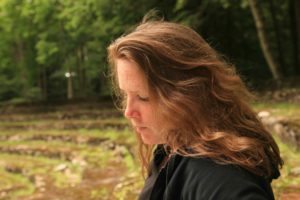
Maureen N. McLane, ‘On the Notational’
Wed 12 May 2021, 5.30pm-7.30pm
Led by poet Maureen N. McLane, this workshop takes wing from Roland Barthes’s meditation on ‘the minimal act of writing that is Notation.’ We will explore ‘the notational’ via Barthes on haiku, and more broadly we’ll explore possibilities in note-taking, note-making, reading and writing and shaping en route. As Vahni Capildeo has said, ‘Poetry achieves renewable acts of noticing’—including the noticing of power relations. Ranging from W. S. Graham’s note-to-self—’take down actual speech’—to other modes of responsive attentiveness and practice, the discussion will draw as well on some other writers and materials: e.g. Tonya Foster’s Swarm of Bees in High Court (2015), Fred Wah, Claudia Rankine, Lorine Niedecker, my own notebooks, annotations, citations, and poems. Among the questions posed and pondered: Why note anything? How? What are your own notational practices, if any? What is the relation between what’s noted and the hazy, sometimes hostile surround? Between the note and the weather? Between the note and the ideologics of the noteworthy? Between the notational and the poem, poetics? What futurity is written into the note? What constraints? What con/temporalities?
Maureen N. McLane is a poet, critic, educator, and divagator working in a tradition of lyric and critical inquiry. She has published six books of poetry, including This Blue which was a finalist for the National Book Award in Poetry, Mz N: the serial, Some Say, finalist for the Audre Lorde/Publishing Triangle Award and for The Believer Award in Poetry, and What I’m Looking For: Selected Poems. Her book, My Poets, an experimental hybrid of memoir and criticism, was a finalist for the 2012 National Book Critics Circle Award in Autobiography. She has also published two critical monographs on British romantic poetics and numerous essays on contemporary literature and culture. Her poems have recently appeared in the London Review of Books, Granta, PN Review, and Bomb; her most recent essay appeared in Public Books. She is Professor of English at New York University.
Organised in collaboration with Nottingham Contemporary, this workshop programme is accompanied by the Five Bodies poetry series, a programme of public readings which brings together some of the most outstanding British and international poets to share unexpected ideas, experimental drifts and multiple voices following a long-standing tradition in poetry writing that melds perceiving, sensing, feeling and knowing as knowledge-making practices. For more information please visit: https://www.nottinghamcontemporary.org/whats-on.
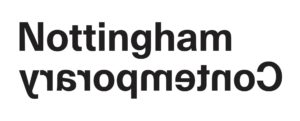
![]()
